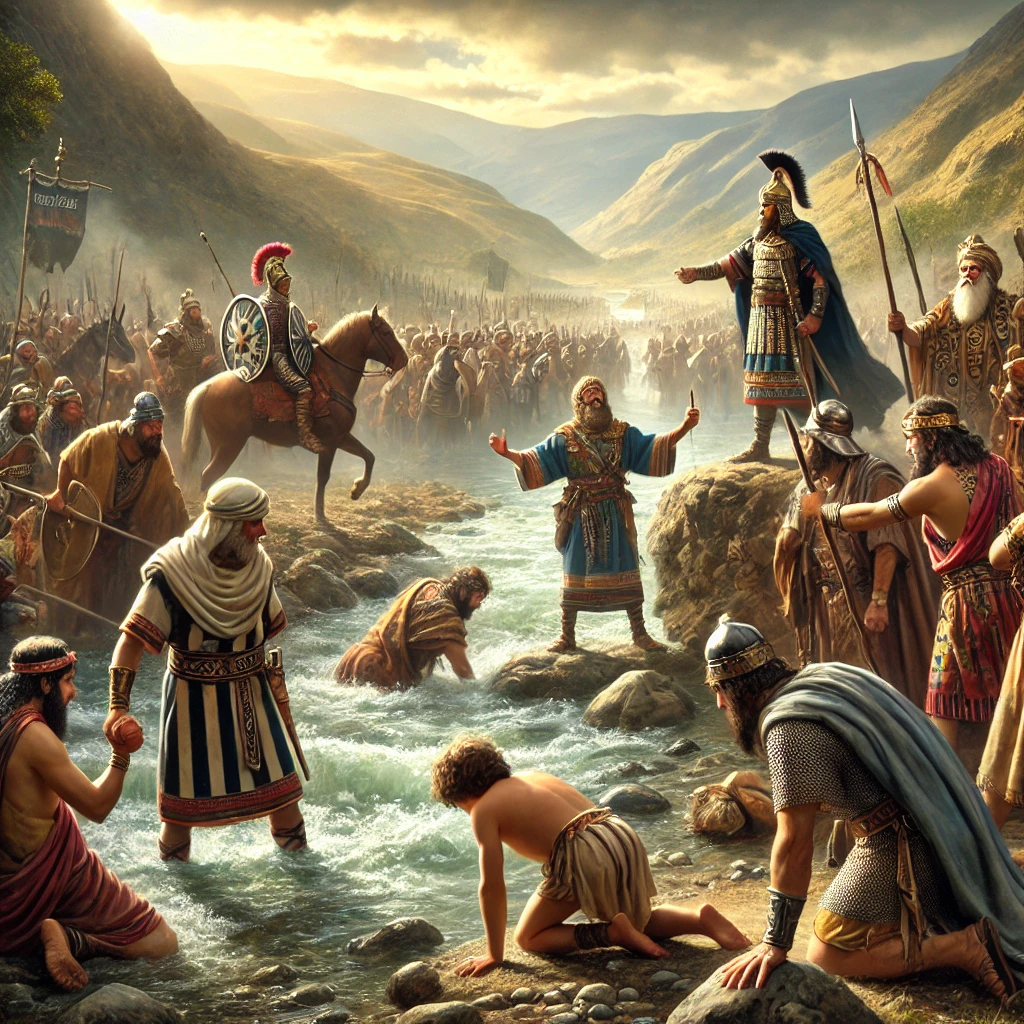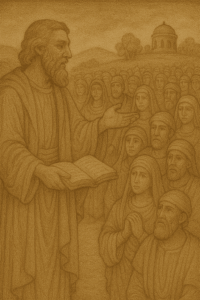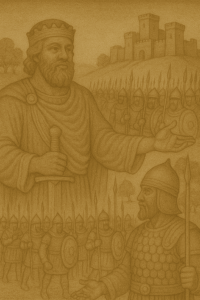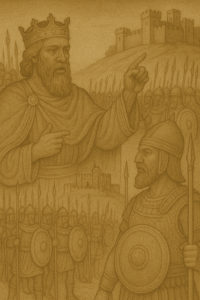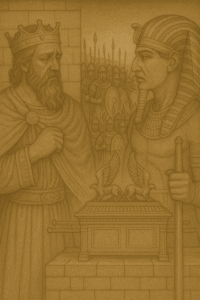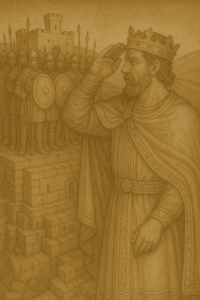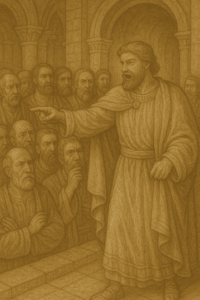Judges Chapter 12 continues the story of Jephthah, the judge of Israel, focusing on his conflict with the tribe of Ephraim and the subsequent events that unfold. This chapter highlights themes of pride, internal strife, and the consequences of division within the people of Israel.
The conflict between Jephthah and the Ephraimites.
After Jephthah’s victory over the Ammonites, the Ephraimites confront him, accusing him of not calling them to join the battle against the Ammonites. They threaten to burn his house down over his head. This complaint echoes a previous confrontation with Gideon in Judges Chapter 8, where the Ephraimites expressed similar anger at not being included in a military campaign.
Jephthah, however, responds with a different approach. He explains that he did call for their help, but they did not respond, forcing him to go to battle without them. When the Ephraimites continue to press their grievance, the conflict escalates into a civil war between the Gileadites, led by Jephthah, and the Ephraimites.
The battle at the Jordan river.
The conflict reaches its peak at the fords of the Jordan River. The Gileadites capture the crossings to prevent the Ephraimites from escaping back to their territory. To identify the fleeing Ephraimites, the Gileadites use a linguistic test. They ask each man to say the word “Shibboleth.” Because the Ephraimites could not pronounce the “sh” sound and instead said “Sibboleth,” they were identified and killed. This tragic and decisive moment results in the death of 42,000 Ephraimites, underscoring the severe consequences of internal division and strife.
The judgeship of Ibzan, Elon, and Abdon.
Following Jephthah’s death, Judges Chapter 12 briefly mentions three other judges who led Israel: Ibzan of Bethlehem, Elon the Zebulunite, and Abdon son of Hillel the Pirathonite. Each judge’s tenure is described in a few verses, emphasizing their roles in leading Israel, though not much detail is provided about their specific actions or the challenges they faced. These judges represent periods of relative peace and leadership transitions in Israel.
Theological reflections.
Judges Chapter 12 offers a sobering reflection on the dangers of pride, lack of unity, and internal conflict within a community. The chapter underscores the importance of collaboration, humility, and understanding among God’s people. The tragic outcome of the Ephraimite-Gileadite conflict serves as a cautionary tale about the destructive nature of division and how it can lead to unnecessary bloodshed and loss.
The impact of Judges chapter 12.
This chapter highlights the complexities of leadership in a divided nation and the ongoing struggle for unity among the tribes of Israel. The story of Jephthah and the Ephraimites, along with the brief accounts of the subsequent judges, illustrates the need for wise, compassionate leadership and the perils of internal strife.
